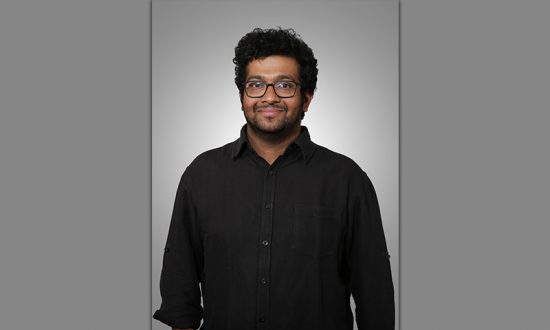Rahil Rupawala, Founder and Director at LightSpeed Mobility, is a passionate cyclist and engineer with a vision to build a cleaner, greener India that is healthier and more active. After securing his post-graduate degree in Design & Transport from Coventry University, Rahil moved back to his hometown Ahmedabad and started thinking of ways to introduce to the country practical commute options that run on alternative energy. After returning from the UK, Rahil Rupawala, who is also a winner of the prestigious Red Dot Award, started working on prototypes of practical, good looking electric bicycles that would easily be adopted by the masses. Along the way, LightSpeed Mobility was incorporated, and more like-minded individuals joined the company to bring Rahil’s vision to fruition.
Electric Vehicles (EVs) have stood out enough to be noticed by automakers and policymakers in India and worldwide. With the Government’s push to make India a 100% EV country by the end of 2030, auto organizations are carefully venturing into the EV space to widen their portfolio. This push for EVs may similarly roll out a critical change in India’s energy security needs, with getting lithium supplies, a key raw material for making batteries, ending up being just probably as critical as buying oil and gas fields abroad.
If India wants to accomplish its electric vehicle aspiration by 2030, it will introduce a market opportunity worth almost $206 billion over the span of this decade, says a report by the CEEW Centre for Energy Finance (CEEW-CEF). The report additionally gauges an aggregate investment need of more than $180 billion in vehicle production and charging infrastructure until 2030 to meet India’s EV target. While India is yet to formally illuminate its zap focuses for 2030, the desire, expresses that 70% of every business vehicle, 30% of private vehicles, 40% of transports, and 80% of bike (2W) and three-wheeler (3W) deals would be electric before the finish of this new decade.
The automobile industry in India represents 22% of the nation’s total manufacturing output and is the 6th largest in the industry. Reports show that EVs can play a vital part in expanding the share of manufacturing in India’s GDP from to 25% by 2022. While vehicle producers are attempting more current approaches to make EVs helpful and moderate to general society, there still stay a few difficulties en route that should be managed head on. EVs keep on confronting a few discernment issues concerning the safety and cost. EVs become costly, fundamentally due to the expense of the battery.
Globally, costs for lithium ion batteries are about $250/kWh, roughly working to about Rs5.7 lakh in battery costs alone, barring import obligations, considering batteries are imported. As of now, lithium-ion batteries account for 50% of the expense of an electric vehicle, making them costly contrasted with conventional vehicles.
Safety of the batteries from possible explosion and low battery life go about as spanner in the realm of the Li-ion battery. Another significant obstacle for EVs in India is charging, or the absence of charging stations, consequently making them unreasonable or less doable for significant distance drives. Helpless security norms of the hardware utilized in EV fabricating is one more requirement, particularly when producers will in general get away from comprehensive testing of each segment. Besides, a few EVs are not as quick as traditional fuel-controlled vehicles.
Experts believe that a systematic and logical methodology is a vital aspect for tending to the security of the lithium-ion battery. An external certificate body can help fill the significant need in the commercial centre, as this research is expensive and cost-restrictive for some producers to do on their own. With advanced testing and logical equipment, manufacturers will actually want to comprehend the explanations behind battery disappointment and the potential dangers of their battery, in this manner helping the produces in their overall design measure.
As fast as new discoveries, sciences, developments, and more challenging applications for LiB innovation arise, the security study of this innovation should likewise progress through proceeded with cross-sector, multi-disciplinary coordinated effort and trade. Enhanced cooperation will prompt more secure battery technology, more noteworthy unwavering quality, and increased confidence by society and public safety authorities and will speed up the acquaintance of more secure items with the commercial centre. Development of approaches around battery reuse, recycling, and renting to help cut down the high forthright expense of EVs is required if India needs to accomplish the objective of being 100% EV country. To support uptake of EVs, it calls for making state EV policies which join impetuses for EVs with disincentives for inner combustion engine (ICE) vehicles.
More About Rahil Rupawala

Rahil’s design philosophy is pro-environment and highly functional, with great emphasis on sustainability and inclusive growth. Having used electric bicycles for personal commute for a long time during his post-graduation, Rahil knew that this was the vehicle segment he wanted to introduce to India’s metros and semi-urban areas.
Over the last fie years, LightSpeed has launched five models of electric bicycles and five models of regular bicycles with unique individual use cases and price points. Since the very beginning, Rahil’s leadership has encouraged a customer-first approach within the company — not only pertaining to building new tech, but also with regards to marketing communications and after-sales.






